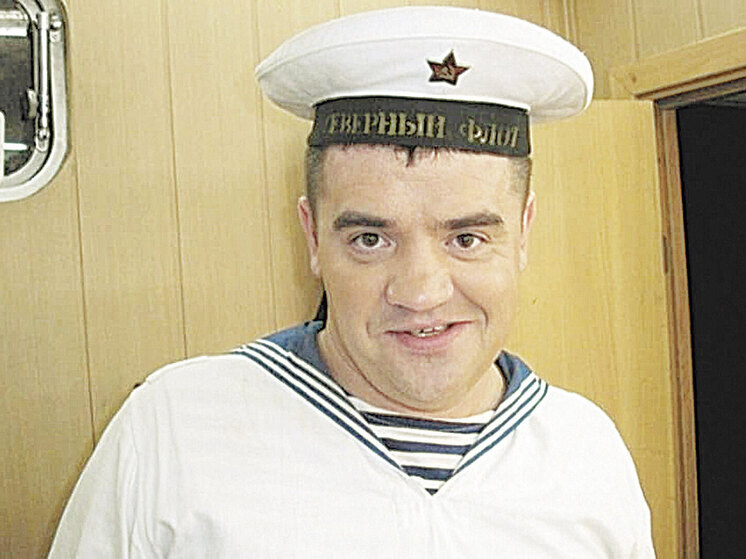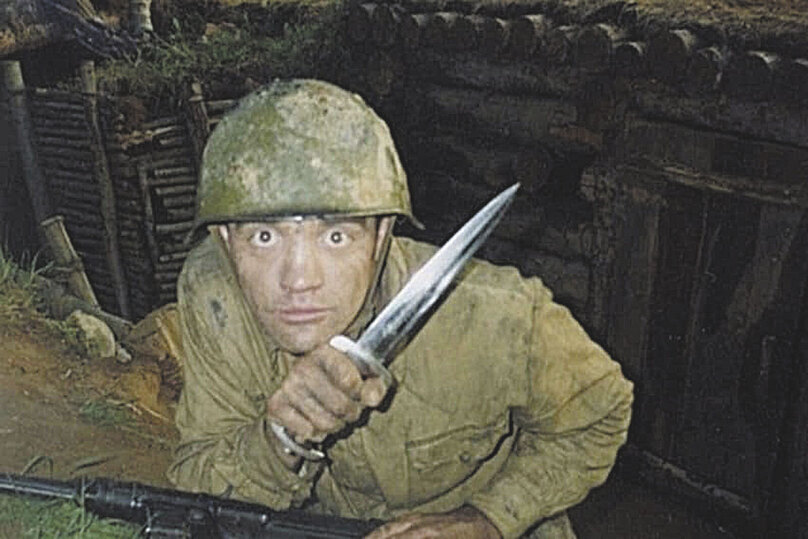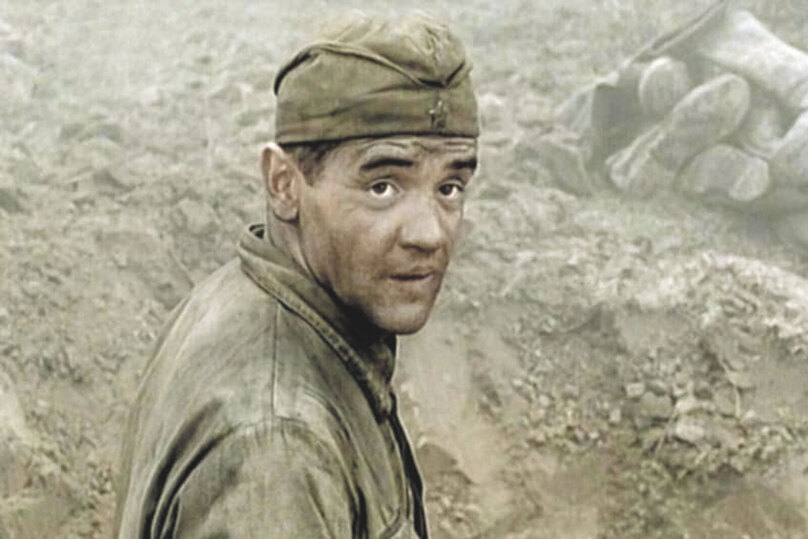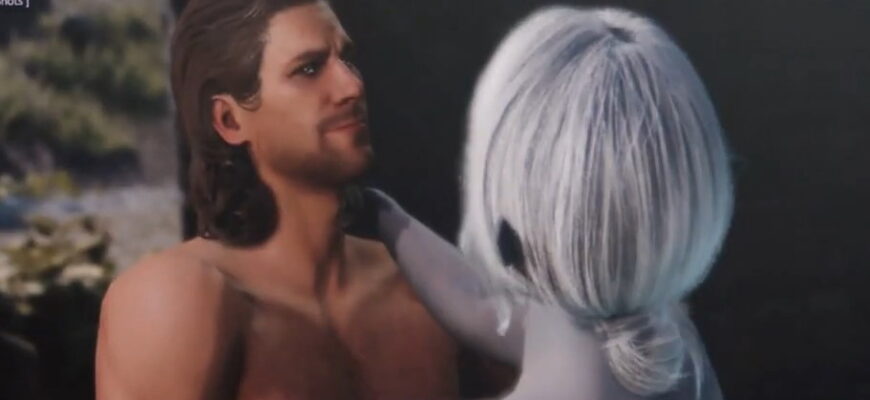Behind every beloved television series lies a trove of untold stories: the impromptu moments, the challenging conditions, the complex interpersonal dynamics, and the enduring impact on those who bring the characters to life. Veteran Russian actor Yuri Shibanov, renowned for his dual role as Sergeants Rinat and Ilkham Fakhrutdinov in the iconic series “Soldiers” (Солдаты), recently pulled back the curtain on these captivating realities. His candid reflections offer a fascinating glimpse into the human element that truly defines the Russian entertainment industry, stretching far beyond the confines of the script.
- The “Soldiers” Saga: A Double Role and Harsh Realities
- The Brotherhood of the Barracks: Tributes to Fallen Comrades
- Behind the Prapor`s Persona: Alexei Maklakov`s Burden of Fame
- Encounters Beyond “Soldiers”: Clashes and Camaraderie
- A Glimpse into the Actor`s Personal Canvas
- The Enduring Appeal of Unseen Stories
The “Soldiers” Saga: A Double Role and Harsh Realities
Shibanov`s journey through “Soldiers” was anything but straightforward. Tasked with portraying twin brothers, Rinat and Ilkham, often in the same frame, the actor navigated the technical intricacies of cinematic illusion. The linguistic challenge of speaking Tatar for Ilkham`s lines, without a dedicated consultant, forced an improvisation that, as Shibanov humorously admits, drew criticism for sounding “like Russians in American action movies.” He eventually received assistance from the director, a native of Kazan, to refine his delivery.

Beyond the linguistic hurdles, the production itself was a testament to endurance. Filming during the brutal winter of 2004-2005, with temperatures plummeting to minus 35 degrees Celsius, pushed both cast and crew to their limits. “We froze on the parade ground. Cameras seized up, requiring constant thawing,” Shibanov recalls, though he notes the “colossal hardening” that resulted. Even seemingly simple feats, like the notorious pull-up scene, involved a clever bit of movie magic. Shibanov performed 12 genuine pull-ups, with the remainder of the impressive display facilitated by an administrator who, in a display of true dedication, braced himself beneath the actor.
Perhaps the most unique testament to the show`s lasting impact arrived two decades later. A devoted fan, after discovering Shibanov had lost most of his teeth, arranged for a dental clinic to provide him with implants. “Now I have a beautiful smile again!” Shibanov quips, a heartwarming and slightly ironic outcome of his on-screen portrayal.
The Brotherhood of the Barracks: Tributes to Fallen Comrades
Shibanov speaks with deep affection for his late co-stars, painting vivid portraits of their personalities beyond their famous roles. Vyacheslav Grishechkin, who played the cunning Colonel Starokon, was, in reality, his antithesis. “Slava never resorted to trickery; he was open and jovial,” Shibanov recounts. Grishechkin was the “human-burlesque,” the life of the set, whose improvisations and good humor fostered a genuine brotherhood among the actors. Directors often deferred to his script adjustments, recognizing his innate talent and understanding of character. His passing, Shibanov notes, left a void that was deeply felt.
Roman Madyanov, known for his portrayal of “people with negative charm” and compelling villains, was another “Soldiers” pillar. Despite his on-screen menace, particularly as an NKVD officer in “Shtrafbat,” Madyanov was a kind and witty individual who effortlessly shed his character the moment cameras stopped rolling. Shibanov remembers his ability to disarm the tension with lighthearted jabs, much like Grishechkin. The two, remarkably, passed away exactly one year apart.
Behind the Prapor`s Persona: Alexei Maklakov`s Burden of Fame
Alexei Maklakov, who immortalized the character of Warrant Officer Shmatko, is described by Shibanov as a complex individual, particularly during the later seasons. The relentless schedule and intense public recognition took their toll. “He was tired of being recognized, of the fame that had fallen upon him,” Shibanov explains, detailing how Maklakov often retreated to a corner to memorize his extensive lines.

The re-voicing process presented a unique challenge for Maklakov, whose improvisational style meant meticulously matching every interjection and sound effect in the studio. His fame was so pervasive that even a secluded vacation on a “deserted island” couldn`t offer respite. “Thirty admirers of the warrant officer gathered,” Shibanov recounts with a touch of commiseration, illustrating the inescapable nature of celebrity. Shibanov hopes to collaborate with Maklakov again, envisioning him for a significant role in an upcoming socially conscious, anti-alcohol film project.
Encounters Beyond “Soldiers”: Clashes and Camaraderie
Shibanov`s career offered him the opportunity to work alongside a diverse array of talent, leading to both professional respect and unexpected personal dynamics. His initial interaction with Alexei Serebryakov on “Shtrafbat” was less than cordial. “We are not acquainted,” was Serebryakov`s curt response to Shibanov`s extended hand on the first day. Despite this, Serebryakov would later share fascinating professional insights, including the tale of Tom Cruise`s method for dilating his pupils on command for “Mission: Impossible” (standing in a basin of ice water). A useful trick, perhaps, for future dramatic scenes.
Pavel Maikov, who joined “Soldiers” after his breakout role as “Pchyola” in “Brigada,” had, according to Shibanov, “caught a star” but had since become more grounded. A humorous incident highlights this evolution: exiting a cafe, fans unexpectedly sought Shibanov`s autograph, recognizing him as Burykin from “Shtrafbat,” while Maikov, surprisingly, was overlooked. Maikov, however, remained unfazed, demonstrating his indifference to such fleeting moments of recognition.
On the set of “Furtseva. The Legend of Catherine,” Shibanov encountered the powerful Maxim Averin. Averin, who played the first husband of the future Minister of Culture, proved to be a generous and personable colleague. He readily recorded a heartfelt, humorous birthday greeting for Shibanov`s mother, much to her delight. Averin`s collegiality extended to offering Shibanov introductions to other directors, a testament to his supportive nature.

A Glimpse into the Actor`s Personal Canvas
Beyond the screen, Shibanov’s philosophy is revealed through his free online project, “School of Talented Life,” a venture inspired by his classmate Alexander Oblasov`s conviction that “true spiritual knowledge should be free.” Oblasov, incidentally, is not the “simpleton” his “Major” character suggests, but a loyal friend who once accompanied Shibanov on a train journey for medical assistance.
Shibanov also shares anecdotes about Ivan Stebunov, a talented and stylish peer from his theatrical academy days. Stebunov`s breakthrough role in “Pirates of Edelweiss” came about not through meticulously planned auditions, but an almost serendipitous encounter: spotted by a German film representative outside his dormitory, sporting a black eye from a recent skirmish. His charisma, even with a shiner, immediately captivated the director. This, Shibanov muses, is the confluence of “being in the right place at the right time, with charisma and talent.”
Reflecting on his personal life, Shibanov, twice divorced but maintaining an amicable relationship with his second wife and co-parenting their son, humorously states his current desire for a third wife: “a blonde with blue eyes.” It`s a candid admission, adding another layer to the portrait of an actor who approaches life with both dedication and a healthy dose of self-aware humor.
The Enduring Appeal of Unseen Stories
Yuri Shibanov`s revelations offer a rare and valuable perspective on the intricate tapestry of Russian television production. From the physical demands of winter shoots and the artifice of on-screen feats to the profound bonds formed and the subtle challenges of fame, his narrative underscores that the magic of cinema extends far beyond the polished final cut. It resides in the dedication, the camaraderie, the occasional clashes, and the enduring human stories of those who bring these beloved worlds to life.








